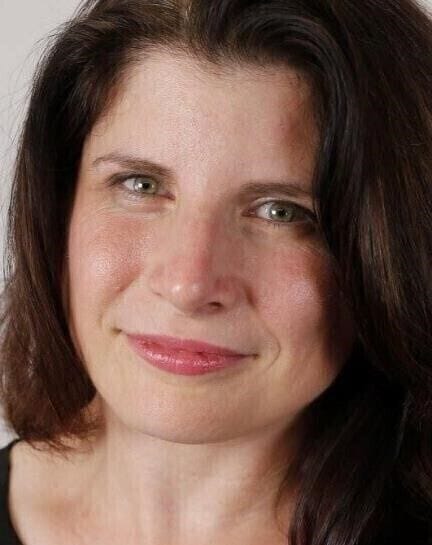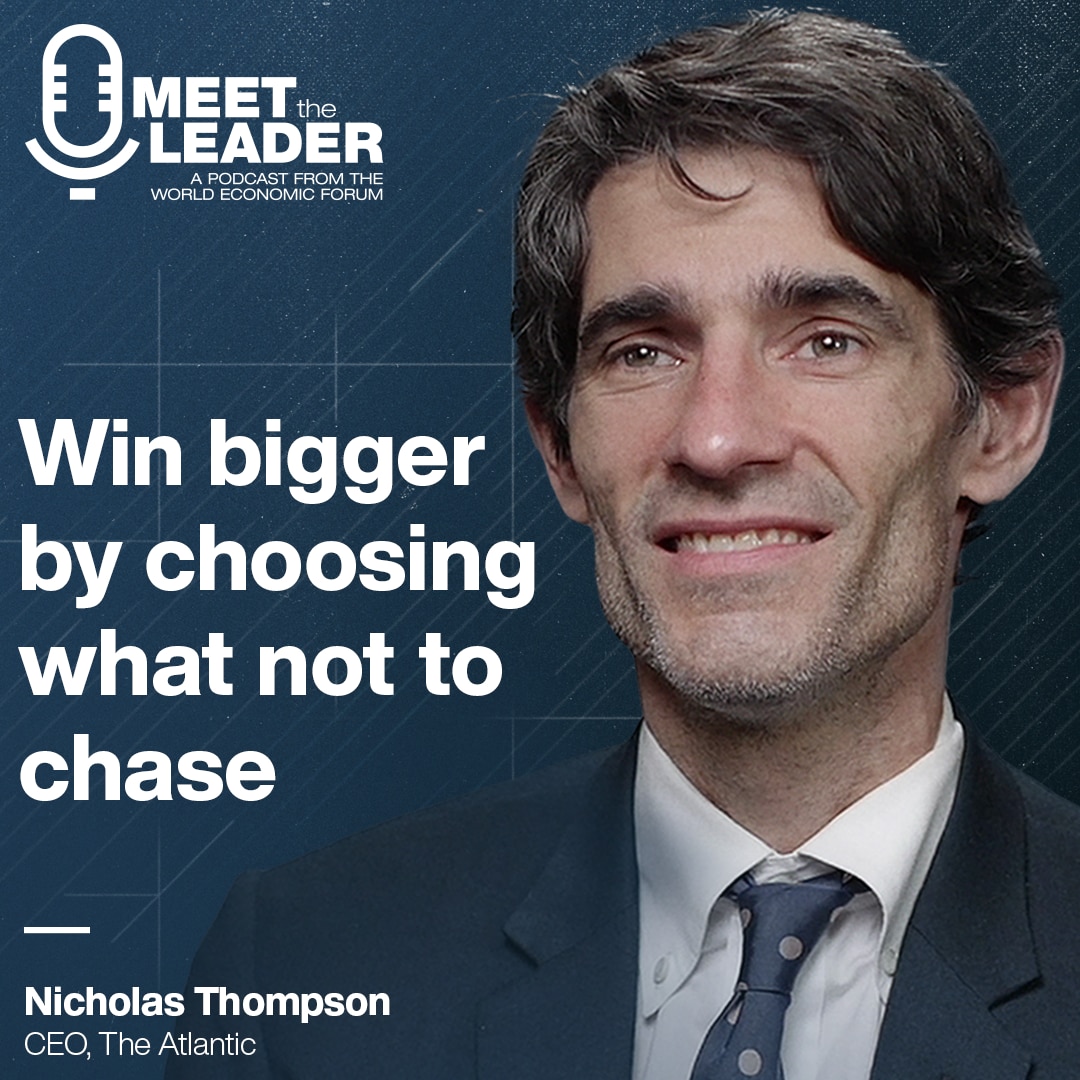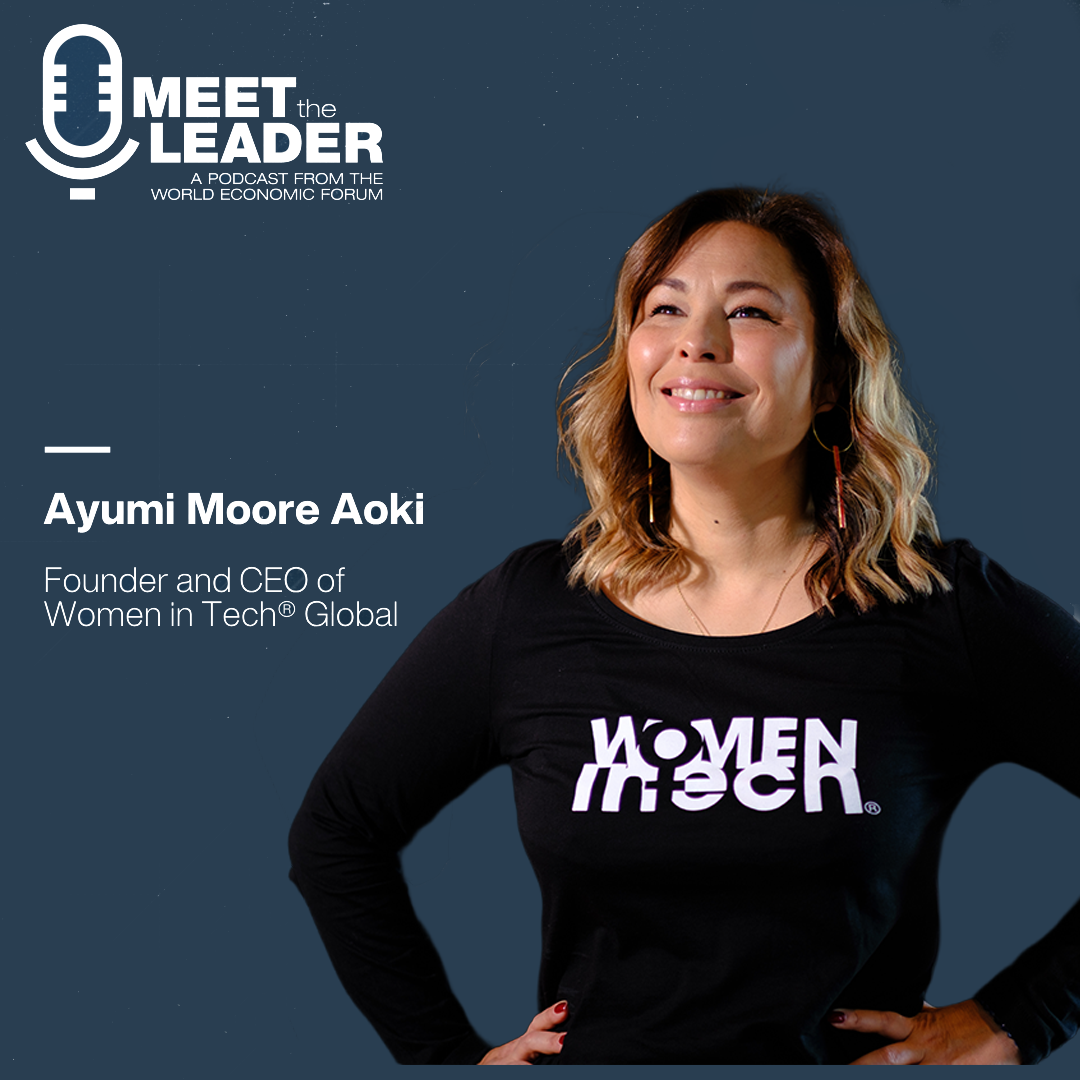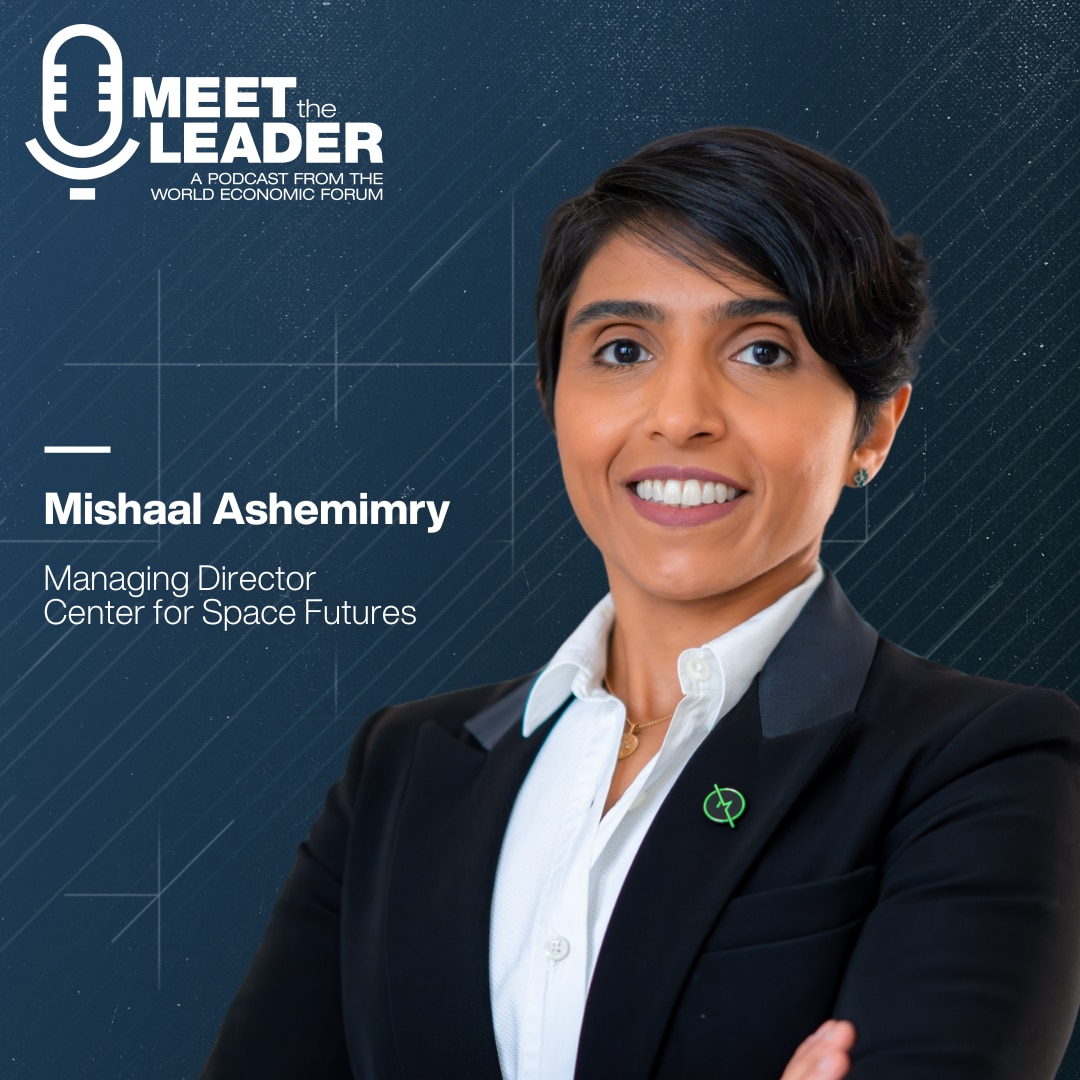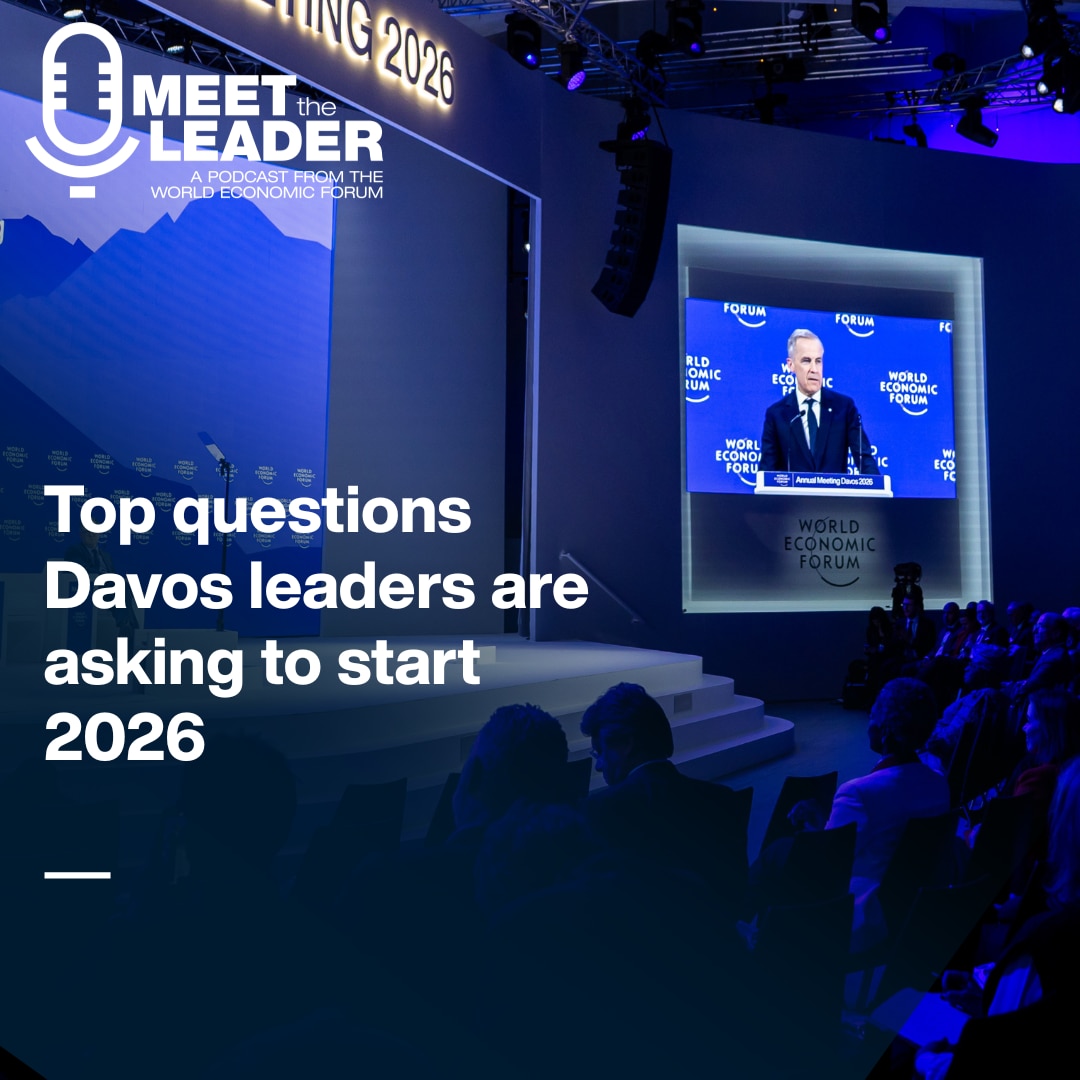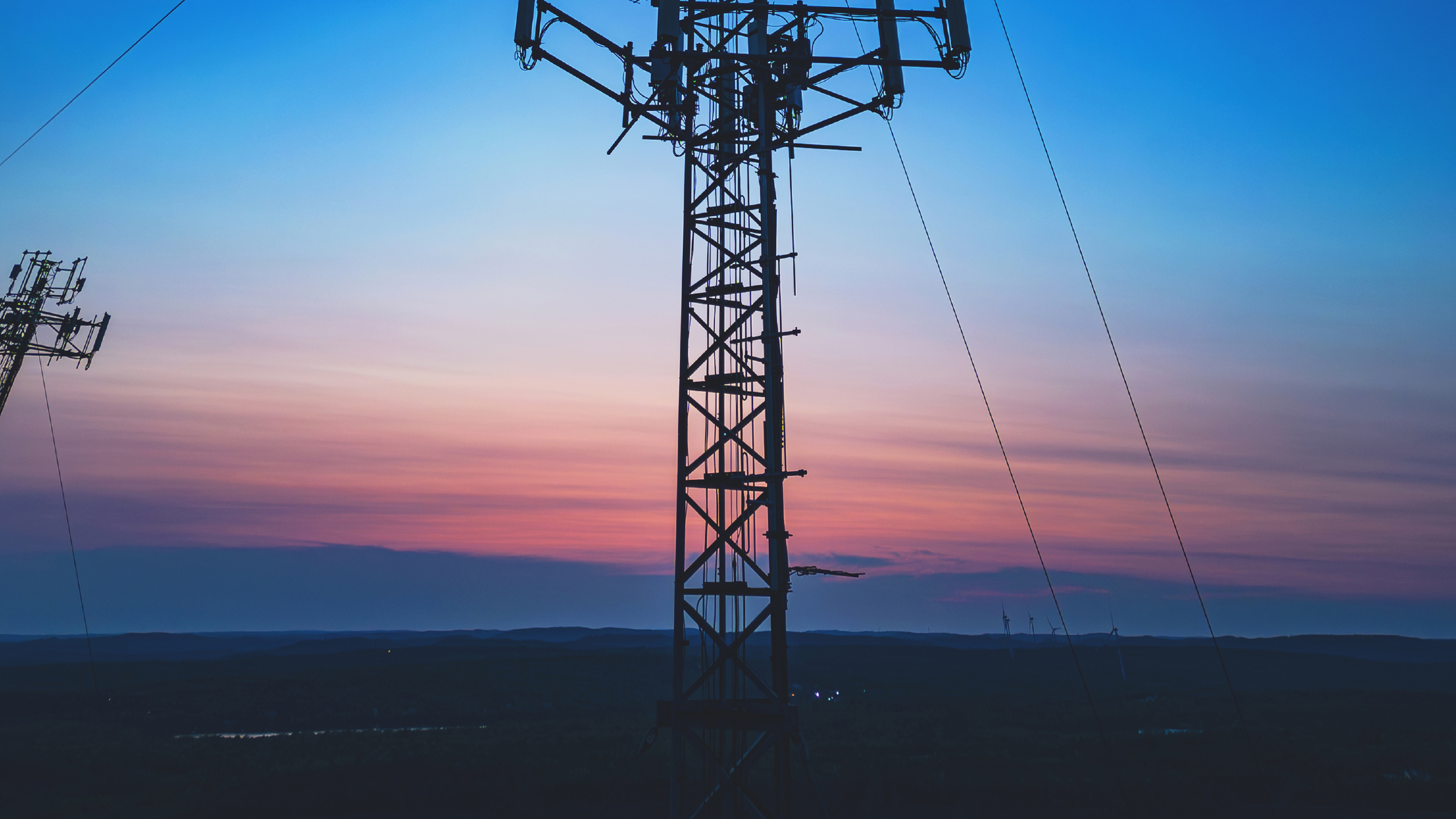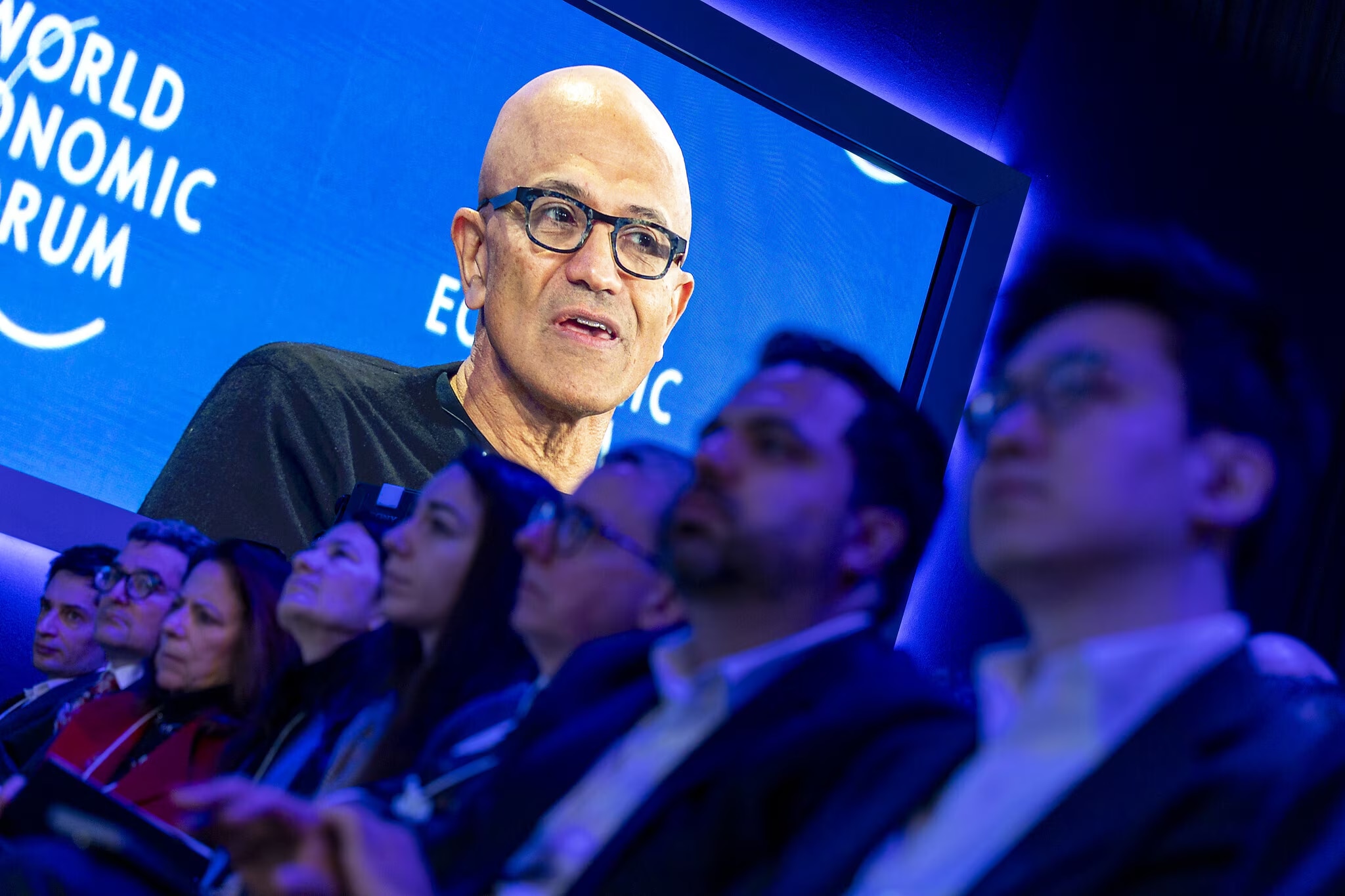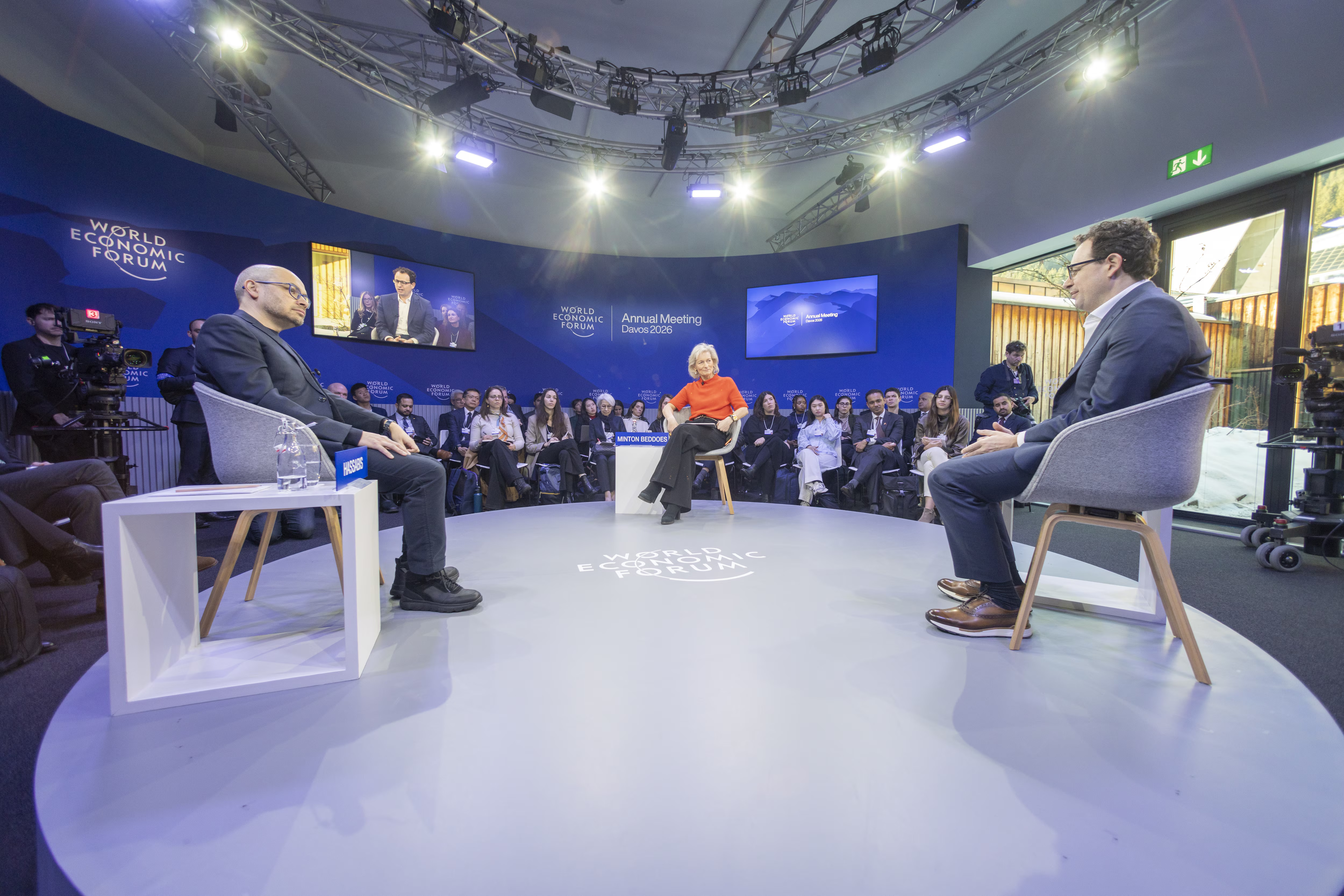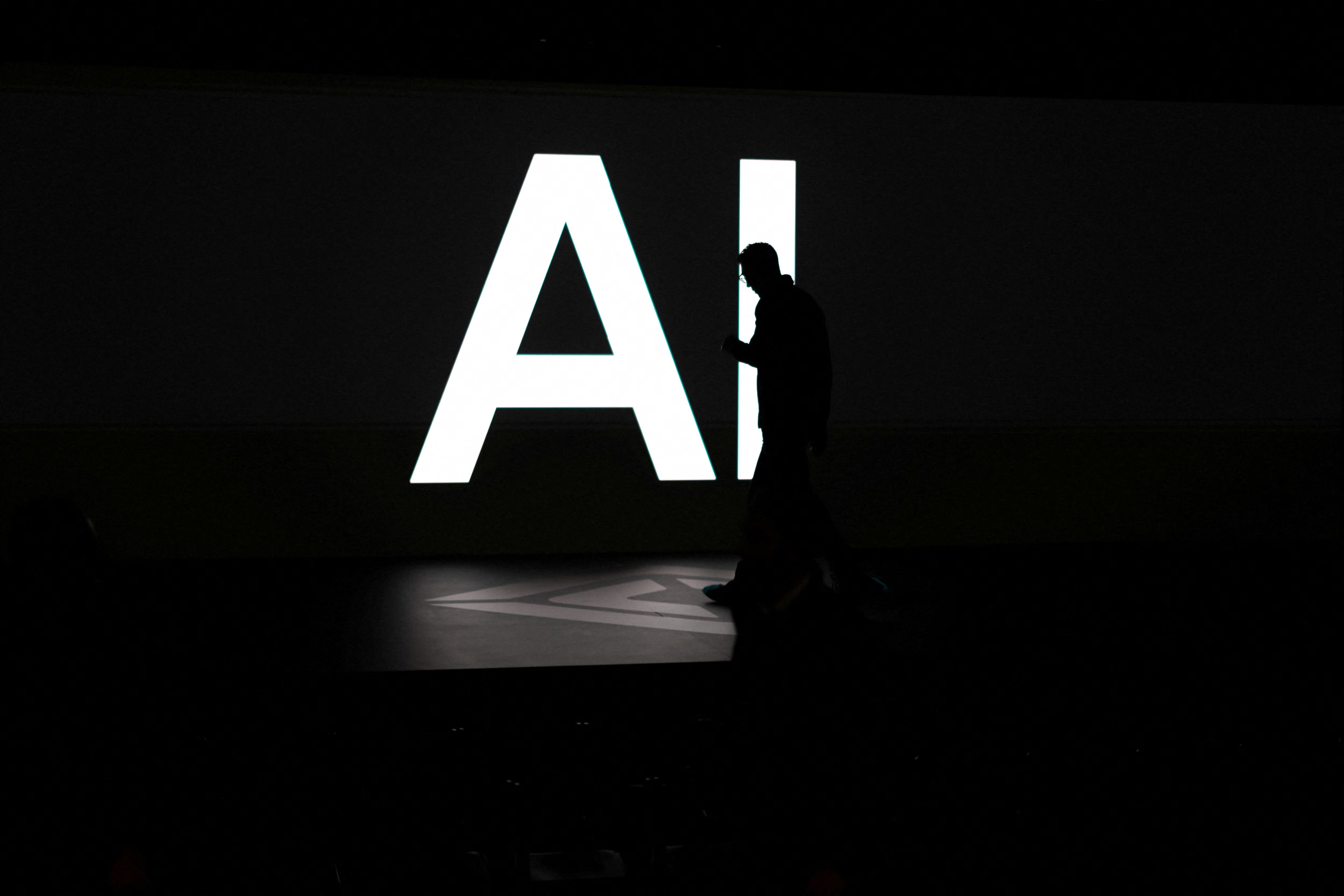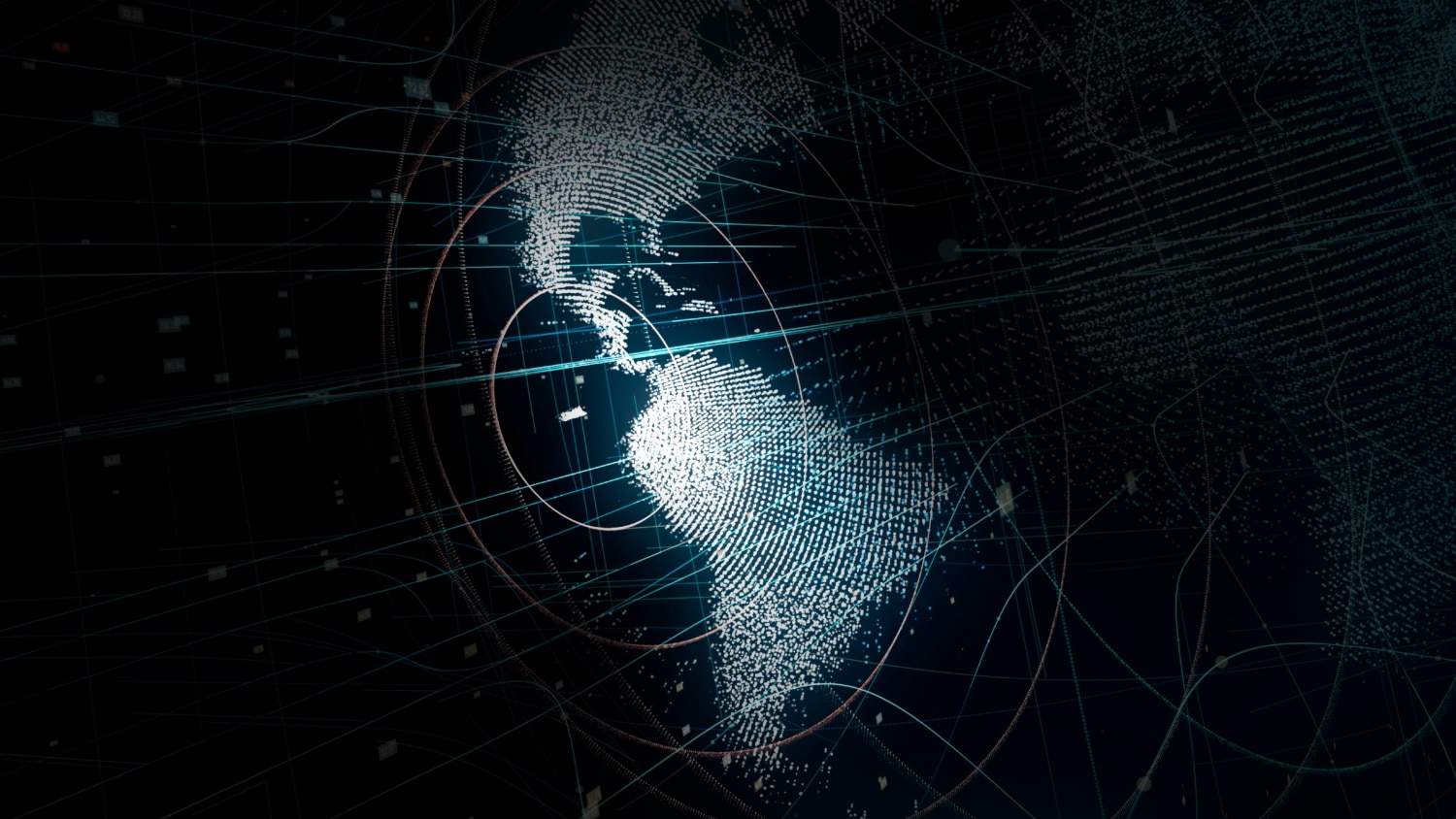How can we harness human creativity in an AI age? Chanel culture exec weighs in.
播客文字稿
Yana Peel, CHANEL: We hear so much about the marginal decline of the value of human intelligence. To think of the amplification of the value of art, of artists, of culture, and to really think about how to empower the musicians, the filmmakers, the great visual artists of the day with the tools of today to solve the problems of tomorrow and to think about how to have them harness these new technologies to advance imagination and creation, as they've really always done.
And that makes me think that here is the opportunity, here is the possibility at last for human creation and for culture to get a seat at the table.
I do think it takes industries across all sectors to appreciate that the arts have never been more needed, but artists have never been more under danger.
Gayle Markovitz, Meet The Leader: Welcome to Meet the Leader. I'm Gayle Markovitz and I'm excited to introduce you to Yana Peel, the Global Head of Arts and Culture at Chanel. She'll talk to us about her work as a cultural leader and how she sees art as a unifying force that helps build connection.
Gayle Markovitz, Meet The Leader: What are the world's challenges that you’re trying to address in your work as a cultural leader?
Yana Peel, CHANEL: In my work at CHANEL, I'm really thinking about championing the voice of the artist and the value of the arts across society as a whole. As we race into this age of AI, AGI, as we're hearing here this week, artists and human creativity have never been more needed. And yet human creators have also never been more under threat.
Being part of the global cultural leaders community, there's a real opportunity to have the arts have that seat at the table. And it's a really exciting moment as we hear so much about the marginal decline of the value of human intelligence to think of the amplification of the value of art, of artists, of culture. And to really think about how to empower the musicians, the filmmakers, the great visual artists of the day with the tools of today to solve the problems of tomorrow. And to think about how to have them harness these new technologies to advance imagination and creation, as they've really always done.
Collaboration with artists has never been more essential for any sector.
”Gayle Markovitz, Meet The Leader: So would you say that the arts and more important now than they ever have been? And is it hard to persuade people of that? Or do you think there is generally an acceptance of that?
Yana Peel, CHANEL: I think there's a need to spotlight the fact that collaboration with artists has never been more essential for any sector. And it's a pleasure and my privilege and my role to extend this 100-year tradition of Gabrielle Chanel in supporting Stravinsky, Diaghilev, Picasso and thinking about what it means to create that time and space for artists without an IRR [Internal rate of Return] or ROI [Return on Investment].
So yes, I think it's an important moment to think about what it means to amplify the role of human creation. And just speaking to Nile Rodgers yesterday, it's an extraordinary opportunity. A multi-Grammy Award winning artist who has just two days ago here at the World Economic Forum discovered what it is to partner with AI, telling me that actually having this new technology is like an artist having a new colour in their palette.
So I think that the opportunities for that collaboration are also so exciting. You know, Demis Hassabis of Google [DeepMind] has said, Sir Demis, that AI can win at chess, but AI cannot invent the game of chess. And so, I think there's never been a more exciting moment for ideas. And at the core, artists have been that greatest source of ideation and as Gerhard Richter always said, art is the greatest form of hope, as well.
Gayle Markovitz, Meet The Leader: And do you have any examples in mind where art has helped move the needle, or changed things for the better or solve an intractable problem?
Yana Peel, CHANEL: Well, when I think about our work, which is now more than 50 programmes across 15 countries and five continents, it's really thinking about how we can empower the great institutions to really go further than they can go themselves.
So if you look at issue of, so if you look at the issue of women's underrepresentation across the arts, I think that's been a really exciting one for us to lean into. CHANEL, of course, is all about women. Women founder, women CEO Leena Nair, 75% of our nearly 40,000 workforce is all female. We now have a gender balanced executive team and board. And as we look at the arts, we know that in American museums, only 11% of works acquired last year were those of works by women. In the art market, 2% of auction values are held by women artists. We look at that and we look at the most expensive painting ever sold at auction, $450 million for Salvador Mundi by Leonardo da Vinci. And in comparison, George O'Keeffe's being less than a 10th of that.
When women thrive, the world thrives.
”I think what we've done that's really exciting is, for example, to work with the National Portrait Gallery in London to solve their challenge of trying to increase the 29% women that they had in their representation of the multi-century gallery. It's been three years, we worked with the CHANEL curator there of reframing narratives, and we can proudly say that when the gallery reopened, that was at parity in the 20th and 21st century galleries.
So we've seen the World Economic Forum, it will be 135 years to get to parity, as your reports have shown us. We hope that culture can move faster. So in our work, we're really trying to accelerate the ideas that advance culture. Equality for women in the arts is one of those ideas. And we know that when women thrive, the world thrives.
Gayle Markovitz, Meet The Leader: There's been quite a backlash against diversity, equity and inclusion. Do you think that's just hype? Do you think it's actually on the ground happening and that companies haven't turned their backs on it in reality?
Yana Peel, CHANEL: You know, in my work, I've never used that term because I've always really been focused on championing excellence. And whether it was through our work at the Serpentine Galleries where we were able to celebrate octogenarian and nonagenarian women artists who were just cusping or incredible black artists like Arthur Jafa and Faith Ringgold, who were getting their first opportunity to show to millions of people on the ground, I'm actually thinking that we need to continue as others roll back. We will roll on in our efforts to ensure that there is human dignity and human opportunity that is balanced.
And in my conversation with Misty Copeland, which is such an honor to have here at the World Economic Forum, she has said that as the first black woman principal dancer at the American Ballet Theater in 75 years, as the first woman to grace the cover of Time magazine, as the first black bestselling female author of her narrative, she would never have been where she was if she did not have that push towards inclusivity.
And so, again, I think that there might be a lot of noise on the horizon in terms of where we are going, but we're very focused on this human-centric approach that gives equal opportunity and equality in terms of that freedom of becoming that has always defined the House [of CHANEL].
Gayle Markovitz, Meet The Leader: You spoke about the role of arts and culture as a, as a unifying force, can you share an example of a project or initiative that highlights how this works as a tool to achieve unification, especially in a context where we have culture wars and immense polarization in society?
Yana Peel, CHANEL: It's a great question. I can think of three unification tools in a sense. I can think of three unification platforms that have been so important for us at CHANEL.
Our podcast, CHANEL Connects, now going into its fifth season, has brought together over 100 creators across disciplines, across music, game design, architecture and film, and has really asked them that question what matters most? What's coming next? Which is a fundamental question that Gabrielle Chanel was always asking. That's been a community that we've been able to gather. And as we look to future seasons, it's really also been wonderful to be able to unify these voices that might never have found each other. Penelope Cruz with the young Spanish filmmaker, Margaret Qualley with a young dancer who is also coming out in her space.
So that's been incredible unifying platform, as has our Next Prize winners. We think about these seasons we've had of really giving power and space and resources to the most extraordinary artists the composers, the game designers, the visual artists who are really driving today's narratives. So that as a community of Next Prizewinners, who are also unified as part of a CHANEL mentorship community and one that then goes on to the Royal College of Art to get those tools, to get the technologies that will enable them to go further than they can go themselves.
And then I think of this community of cultural leaders. It's so important for us that the 50 institutions that we support around the world are also united in dialogue about the questions that are at the core of their very regional issues that ladder up to global impact and global resonance. So we also have an annual assembly where we gather the world's cultural leaders from theaters, from dance companies, from libraries, from film. And we bring them together to really collectively address the big issues of the day.
Gayle Markovitz, Meet The Leader: And do you think this has an impact on ordinary people in ordinary communities? I know Misty's, Misty Copeland’s story was very much linked to a ballet teacher who gave her a vision. How do you feel like your work is relatable for an 8-year-old girl who might want to do something and have impact on the world?
Yana Peel, CHANEL: I think to address that, I always go back to the words of Gilbert and George, our great British artists who really championed art for all. And that's really at the core of our work. I thought about what you were saying in terms of that unification and the access, and it makes me think that through arts you can have that soft power. You can really use what Joseph Nye termed that phrase about mutual appreciation and honour and softer forms of coercion to really find shared narrative.
In a way, we can open the first public arts library in China, which we're doing with our partners at Power Station of Art in one moment. And in the next week, we can work with our American partners to really champion technological education and harnessing that for the power of artists to make sure that they ensure their own authorship. So through the work, there's a connection on the ground in terms of millions of people in China being able to access in Shanghai, the first public arts library, and then thousands of students who in California will be able to harness the great technologies to drive their own work in innovative ways.
Yeah, I think also about a Culture Pass that we have on the ground, which has been really important to me. It's been thinking about how as a company that employs nearly 40,000 people, how do we make sure that while luxury perhaps is the dream for many, but a reality for the few, that in a company that has been defined by this cultural pioneer and maverick, that we can offer access to our thousands of people to events every day. So, in our London headquarters, for example, we have a programme called the Culture Pass, which gives people access to 10 cultural institutions in the UK and forever coming into the office and having people returning from the National Portrait Gallery, from the National Gallery, with this incredible enthusiasm, speaking about the play that they saw at the Old Vic or at the Almeida.
And so, I think culture does create this common narrative. My mentor, Zaha, my, my mentor and great friend, Zaha Hadid, when she was alive, used to say, there are 360 degrees, why look at just one? And for me, it's really important that the arts are really encompassing, inclusive and create a platform for shared conversations so demanded today.
My mentor and great friend, Zaha Hadid, used to say there are 360 degrees, why look at just one?
”Gayle Markovitz, Meet The Leader: That really resonates with me because I worked with Zaha Hadid for two years, actually.
Yana Peel, CHANEL: You did? That's so extraordinary.
Gayle Markovitz, Meet The Leader: I remember her saying that, she used to see the world through 360 degrees.
Yana Peel, CHANEL: She also used to say there should be no end to experimentation. And I think that was an extraordinary prescience of art and architecture and pointing to where we might be in 2025. So, when I think of that term collaboration, I often think about Zaha as a pioneer using those technologies. And I always think that, you know, artists have always harnessed these great technologies to advance the possibilities of creation and imagination.
Gayle Markovitz, Meet The Leader: A little bit about you and your background. So you are, it's not a linear trajectory. You studied economics at LSE [London School of Economics]. How did you come to arts and Culture? What was the, what was the inspiration?
Yana Peel, CHANEL: What did Albert Einstein say? Logic will take you from A to B, creativity will take you everywhere. So, I've always been very excited by the ideas that drive society forward and my studies did have me starting in economics at LSE.
I moved from there to Goldman Sachs, where I was very fortunate to be at the frontier of new technologies and to be working on a trading floor at the turn of the century in the moment where Cool Britannia was really forging great relationships between the arts. That amazing show Sensation at the Royal Academy that first brought the YBAs [Young British Artists] like Damien Hirst and Tracey Emin to light. And the economics where I appreciated that there was such a gap that has only since become wider.
And so, from Goldman Sachs, I created a foundation that really focused on harnessing creative solutions to the funding problems that we see continuing today. And from there, it was a very exciting chapter in Asia, where I also chaired an art space, drove a media organization and was able to really think about what it meant to think locally and act globally.
So, from there, the work at the Serpentine Galleries and public service really under Chairman Michael Bloomberg was extraordinary. It enabled me to bring the first chief technology officer into the beloved London institution. And here at CHANEL, in my work as President, Arts, Culture & Heritage and a member of the Fondation CHANEL, I'm also able to really expand power from power and to be able to connect the dots and connect the individuals. As E.M. Forster said, “Only connect!”
So being here, being able to address this theme of collaboration makes me feel like this life's endeavour has really been in service to this mission. And that mission really is ensuring that the arts have the voice in society, that culture is seen as valuable. As I was taught by Michael Bloomberg, Culture attracts capital faster than capital attracts culture. And so, I do think it's a really important conversation to be having across every sector.
Artists have always harnessed these great technologies to advance the possibilities of creation and imagination.
”Gayle Markovitz, Meet The Leader: Do you think culture is valued enough or do you think it's overlooked?
Yana Peel, CHANEL: I think culture is undervalued, under-prioritized and concerningly underrepresented. And so, to have a global cultural voice at the World Economic Forum feels incredibly important. Never more so than in the age of a future artificial general intelligence.
We speak so much about the possibility of the marginal value of human intelligence declining, and that makes me think that here is the opportunity, here is the possibility at last for human creation and for culture to get a seat at the table. I do think it takes industries across all sectors to appreciate that the arts have never been more needed, but artists have never been more under danger. And if we look at the music industry, it's a $50 billion industry, and 70% of musicians surveyed say that they are concerned about what these technologies will mean for their livelihoods.
So, I think it's a really great moment to ensure that artists are embracing technology, but that technology is also embracing art and culture in its design. And that's where we want to make sure that we create the time, the space and offer the resources as a house that doesn't need to use the arts in service to its financial ambitions.
Gayle Markovitz, Meet The Leader: Was there a moment in your career where you faced a challenge? And it pushed you to a new way of thinking as a result?
Yana Peel, CHANEL: I think about, nearly five years ago now, when I joined the executive team at CHANEL. It was March 2020 and the obvious challenge in taking on a role that was destined to extend the vibrant networks of the house beyond the century into the many countries of excitement and operation, and then the world closed for COVID. And then there was this question of how do you live and breathe and inspire and drive the excitement of the arts, which can only be felt by being in a theatre or by having a conversation with the filmmaker or by sitting in a cinema or by seeing the most extraordinary exhibition in a museum.
And so, I think the challenge of COVID at the beginning of my journey on this executive team was one that seemed existential. And yet we know never let a good crisis go to waste. And so, from that, we launched CHANEL Connects as a podcast. We started bringing people together to try to understand what matters most, what's coming next to artists. And what came from that was the agenda, it was the agenda that we should not be creating our own institutions, our own art spaces, but we should become a partner that really went to the ground, was needs-based, asked our partnering institutions – from the Museum of Contemporary Art in Chicago to the National Museum of Norway – what is it that matters to you and what is most needed?
And so, I think from that moment of challenge in terms of having theatres closed, museums defunded and the impossibility of experiencing the magic of culture, came the opportunity to spend a year harnessing those ideas, having these kinds of conversations and coming out into the world and saying that we wanted to be the best partner. We wanted to accelerate ideas that drive culture globally. We wanted to create spaces and places for artists to be able to have their wildest ideas and that freedom of creation. And we wanted to convene the cultural leaders, the CEOs of these institutions who are really thinking about the soft power and the hard solutions demanded to address a lot of the questions that are being asked at Davos this week.
Gayle Markovitz, Meet The Leader: As a leader, is that the perspective that you have now in your career that you might not have had 10 years ago? Has something shifted fundamentally as you’ve matured, I suppose, as a leader?
Yana Peel, CHANEL: It's interesting because when I sat here for first time as a young global leader 10 years ago, there was this desire to have the answers. And I think, in this role, at this point in my career, there is a comfort in embracing ambiguity.
So, I think that as we see what is happening in terms of the acceleration of technology, the evolution in science and education, in energy, as that relates to culture, as it relates to the possibilities, rather than having the defined answers that seemed so demanded a decade ago, there seems to also be an urgency and a need to actually stay agile, to stay flexible, to work within the possibilities of what's available, and to look for the blue ocean, to look where the opportunity is so that one can celebrate indigenous communities in Norway, so that one can celebrate black and Latinx excellence in Chicago, so that one can meet the needs of a very curious cultural community in Shanghai when it comes to craft and architecture, and that one can look to America and say what an exciting moment this is for the advancement of technology. And while there will be these great divides that we see emerging, how can we make sure that artists stay connected and that they are able to drive and define these exciting future conversations?
I think copyright and authorship is also really interesting. So, there's so much ambiguity at the moment in terms of where the artist will emerge when it comes to so many of these evolving technologies and geopolitical developments. And so, the fluidity of movement and the fluidity of ideation takes me back to Diaghilev and that idea of century ago that Gabrielle Chanel was embracing, that there was no hierarchy of the arts and that one needed to move across sectors and across ideologies.
And so, I'm really excited about what this ambiguity entails. And of course, being armed with the information and being here and having these conversations has never been more essential than it is today.
In this role, at this point in my career, there is a comfort in embracing ambiguity.
”Gayle Markovitz, Meet The Leader: Is there a piece of advice that you've been given in your career that, you've spoken about Zaha Hadid, who was a big influence, but is there is there one piece of advice that has been particularly meaningful?
Yana Peel, CHANEL: Interesting. Well, I think about my chairman at the Serpentine Galleries, Mayor Michael Bloomberg, who always told me that culture attracts capital faster than capital attracts culture. And in that I was shown the power of having big business appreciate the value of culture and what it means across society in terms of arts for all and access there.
When I think of a quote, I think of E.M. Forster, “Only connect”. And so I love the theme of this forum in terms of that theme of collaboration, because I think it's really our capacity to collaborate across ideologies, across the arts, across countries, across cultures and across artistic endeavours that really defines the power of the Intelligent Age.
Our capacity to collaborate across ideologies, across the arts, across countries, across cultures and across artistic endeavours defines the power of the Intelligent Age.
”Gayle Markovitz, Meet The Leader: Thank you, Yana. For more video podcasts go to the World Economic Forum YouTube page. And for more podcasts and transcripts go to wef.ch/podcasts.
What is the value of human creativity in an age of AI? In her role as President, Arts, Culture & Heritage at CHANEL, Yana Peel thinks deeply about the value of the arts across society and what’s needed to amplify a range of voices. She talks to Gayle Markovitz, the Head of Written and Audio Content at the World Economic Forum about how technological shifts could boost the value of human creativity and why collaboration with artists has never been more essential. She also takes us through her unconventional background, one that includes economics study at the London School of Economics and a turn on the Goldman Sachs trading floor, and what she has learned from artists and business leaders about the critical role arts and culture play in attracting capital, driving social change and fueling innovation.
话题:
人工智能分享:
更多集:
每周 议程
每周为您呈现推动全球议程的紧要问题(英文)

